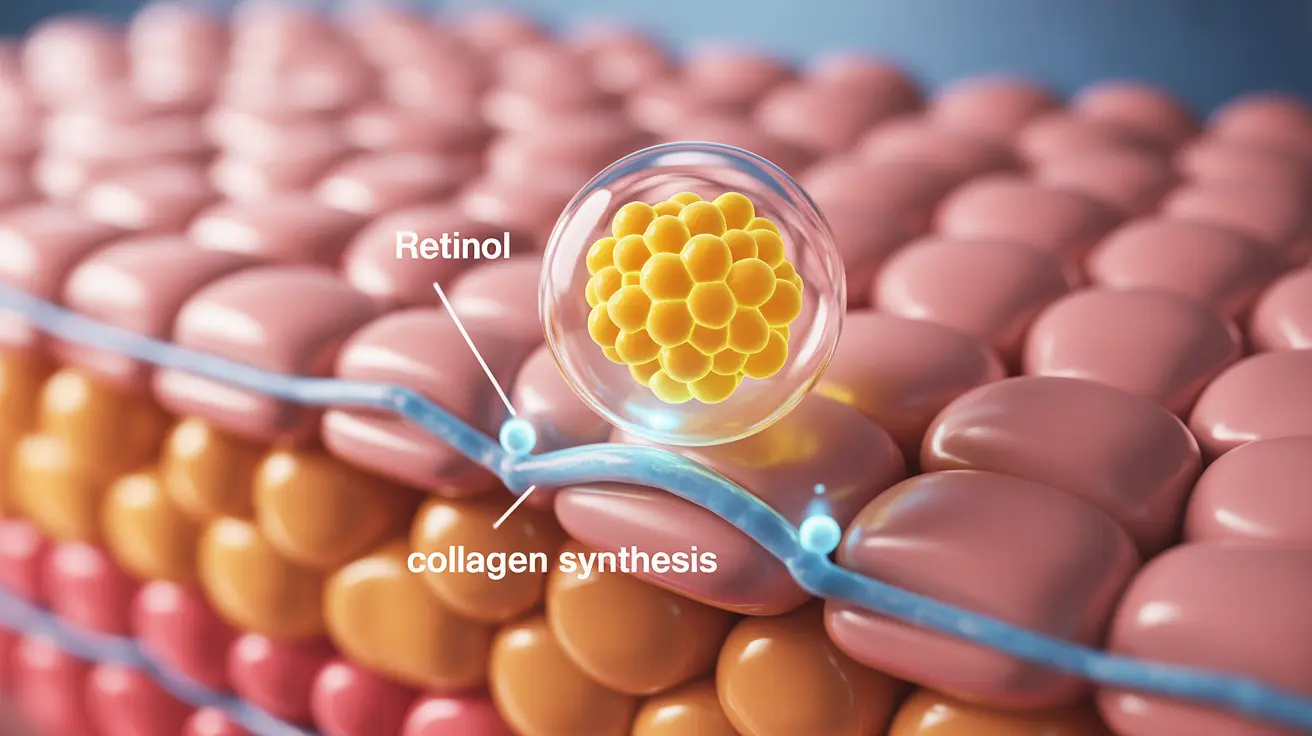Retinol has become a cornerstone ingredient in modern skincare routines, celebrated for its remarkable ability to transform skin health and appearance. This vitamin A derivative has earned its reputation as one of the most scientifically-backed skincare ingredients available over the counter, helping millions achieve clearer, younger-looking skin.
Whether you're dealing with signs of aging, stubborn acne, or simply want to maintain healthy skin, understanding retinol's benefits and proper usage is essential for achieving optimal results while minimizing potential side effects.
What Is Retinol and How Does It Work?
Retinol is a derivative of vitamin A that belongs to a broader category of compounds called retinoids. When applied to the skin, it converts into retinoic acid, which then interacts with specific receptors in your skin cells to promote cellular turnover and stimulate collagen production.
This powerful ingredient works at multiple levels within the skin:
- Accelerates skin cell renewal
- Boosts collagen and elastin production
- Regulates oil production
- Improves skin texture and tone
- Helps unclog pores and prevent breakouts
The Benefits of Retinol for Different Skin Concerns
Anti-Aging Effects
Retinol is particularly renowned for its anti-aging properties:
- Reduces the appearance of fine lines and wrinkles
- Improves skin firmness and elasticity
- Evens out skin tone and reduces age spots
- Enhances skin texture and brightness
Acne Management
For those struggling with acne, retinol offers several benefits:
- Helps prevent pore blockages
- Reduces inflammation
- Promotes faster healing of existing breakouts
- Minimizes acne scarring
How to Use Retinol Safely
Proper introduction and usage of retinol is crucial for achieving the best results while minimizing irritation:
- Start with a lower concentration (0.25-0.5%)
- Begin using it 1-2 times per week
- Apply to clean, dry skin in the evening
- Wait a few minutes before applying moisturizer
- Always use sunscreen during the day
Tips for Minimizing Irritation
To reduce the likelihood of experiencing side effects:
- Buffer retinol by mixing it with moisturizer
- Avoid using other active ingredients on retinol nights
- Keep skin well-hydrated
- Don't apply retinol to damp skin
- Listen to your skin and adjust usage accordingly
Important Considerations and Precautions
While retinol is generally safe for most people, certain precautions should be taken:
- Always perform a patch test before full application
- Avoid using during pregnancy or breastfeeding
- Protect skin from sun exposure
- Don't combine with certain active ingredients like benzoyl peroxide
- Store products properly to maintain effectiveness
Frequently Asked Questions
What is retinol and how does it help improve skin health?
Retinol is a vitamin A derivative that improves skin health by increasing cell turnover, stimulating collagen production, and regulating oil production. It effectively addresses multiple skin concerns including aging signs, acne, and uneven texture.
How should I use retinol safely to reduce side effects like irritation and dryness?
Start with a low concentration and use it 1-2 times per week, gradually increasing frequency. Apply to clean, dry skin in the evening, and always follow with moisturizer. Consider buffering with moisturizer initially to minimize irritation.
What are the common benefits of retinol for aging and acne-prone skin?
For aging skin, retinol reduces fine lines, wrinkles, and age spots while improving firmness. For acne-prone skin, it helps unclog pores, reduce inflammation, and prevent breakouts while minimizing scarring.
Why does retinol increase skin sensitivity to the sun and how can I protect my skin?
Retinol increases cell turnover, making skin more sensitive to UV damage. Protect your skin by using a broad-spectrum SPF 30+ sunscreen daily, wearing protective clothing, and limiting sun exposure, especially during peak hours.
Can pregnant or breastfeeding women use retinol safely on their skin?
No, pregnant or breastfeeding women should avoid using retinol. While topical retinol has limited absorption, healthcare providers recommend avoiding all retinoids during pregnancy and breastfeeding as a precautionary measure.




